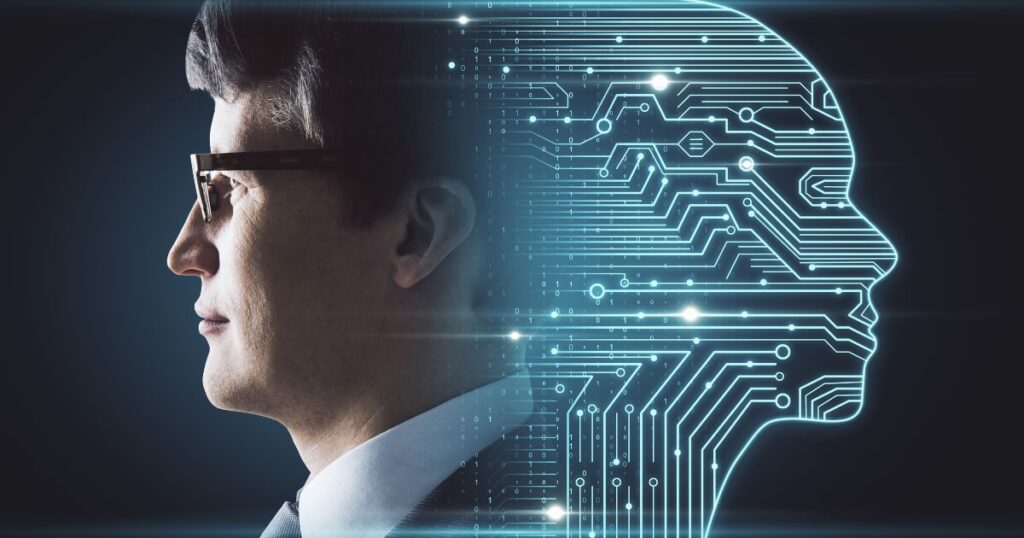
New Age: The Intelligent Machine Changes Engineering
Engineering is undergoing a revolution, and the driving force behind this transformation is Artificial Intelligence (AI). Gone are the days when designs were drawn from imagination, and calculations were done manually. Today, AI is reshaping every aspect of the engineering process—from the first spark of an idea to the final product it becomes. This technology is empowering engineers to create solutions that are more complex, efficient, and innovative than ever before.
In this blog, we explore the exciting intersection of AI and engineering, highlighting how AI is changing the landscape of the industry.
Redesigning Design: AI Takes It to New Heights
AI algorithms are revolutionizing the design process. By processing vast amounts of data, AI can identify patterns and solutions that were previously unimaginable, taking the concept of “thinking outside the box” to extreme levels. Here’s how:
- Data-Driven Design: AI scans millions of data points to come up with optimized solutions for engineering challenges.
- Innovative Materials and Structures: AI-driven generative design produces lighter, stronger, and more efficient materials and structures, improving everything from bridges to airplanes.
Simulations: Virtual Testing for Real-World Success
AI is enhancing simulation capabilities in engineering. Instead of relying on traditional testing methods, AI allows engineers to test their designs in a virtual world before construction begins.
- Realistic Simulations: AI creates highly accurate simulations of engineering systems, enabling engineers to identify potential design flaws before physical work starts.
- Risk Reduction: Engineers can spot defects, optimize designs, and ensure better performance in real-world applications.

Optimizing Operations: AI Enhances Manufacturing
AI plays a crucial role in streamlining operations within manufacturing environments. With real-time data analysis from sensors and other devices, AI helps optimize processes and improve efficiency.
- Process Optimization: AI analyzes sensor data to optimize manufacturing processes, reduce waste, and minimize errors.
- Predictive Maintenance: AI can predict when equipment will fail, helping prevent costly downtime and improving the longevity of machinery.
Evolving Control Systems: Faster Response Times
AI-enabled control systems are transforming the way systems adapt to changing conditions. These systems can respond to shifts in real-time, making them ideal for complex operations like robotics and autonomous vehicles.
- Adaptive Control Systems: AI can quickly adapt to changing conditions, making autonomous systems more responsive and efficient.
- Improved Robotics: AI allows for the rapid development of robots that can perform tasks with high precision, even in unpredictable environments.
Real-World Examples: AI in Action
AI’s impact on engineering is already being felt across various sectors. Here are some real-world applications:
- Civil Engineering: AI helps design resilient infrastructure capable of withstanding earthquakes and optimizes traffic flow in urban settings.
- Mechanical Engineering: AI powers sophisticated robots that perform complex tasks, such as assembly in industrial settings.
- Aerospace Engineering: AI is being used to design and control advanced aircraft, pushing the boundaries of aviation technology.

For engineers interested in applying AI, here are some immediate steps:
The Future of Engineering with AI: A World of Possibilities
As AI continues to evolve, its potential applications in engineering will expand, opening up exciting new possibilities. Here are some forward-looking innovations:
- AI-Powered Design Assistants: AI could become a collaborative tool that assists engineers in tackling the most complex design challenges.
- Self-Healing Materials: AI could enable materials that detect and repair damage autonomously, reducing maintenance costs and extending the lifespan of structures.
- Fully Autonomous Robots: The development of robots capable of performing dangerous or monotonous tasks will improve safety and efficiency in engineering.
Impact on Engineers: Empowering, Not Replacing
AI is not meant to replace engineers—it is a tool that enhances human capabilities. Engineers who are well-versed in AI will be in high demand as the technology continues to grow and transform the industry.
- Augmenting Human Capabilities: AI frees engineers from repetitive tasks, allowing them to focus on more creative and complex problem-solving.
- AI Skills in Demand: Engineers who can integrate AI into their work will have a competitive edge in the job market.
Going Beyond the Hype: Challenges and Considerations for AI in Engineering
While AI has enormous potential, its application in engineering brings several challenges. Understanding these hurdles is key to its successful implementation.
1. Data Quality and Availability
AI relies heavily on data. In engineering, this means access to high-quality, relevant datasets.
- Data Collection: Gathering, cleaning, and labeling data can be time-consuming and costly.
- Data Privacy and Security: Ensuring the integrity and security of data is critical, particularly when dealing with sensitive information.
2. Explainability and Trust
Many modern AI algorithms are considered “black boxes,” meaning their decision-making process is not always transparent. In engineering applications, where safety and reliability are crucial, engineers need to understand how AI systems arrive at their conclusions.
- Interpretability: Developing AI models that are interpretable will increase trust and foster greater adoption.
3. Ethical Considerations
AI systems can inadvertently reinforce biases present in the data they are trained on. In engineering, this could lead to unintended consequences, such as biased traffic management algorithms or unsafe designs.
- Fairness: AI in engineering must be designed to minimize bias and ensure equitable outcomes for all stakeholders.
4. The Human Factor
Despite the rise of AI, human engineers will remain essential in the process. Engineering judgment, creativity, and problem-solving skills cannot be replaced by machines.
- Collaboration with AI: The future of engineering lies in collaboration between human expertise and AI capabilities, working together to solve complex challenges.
5. Closing the Skills Gap
As AI becomes more prevalent in engineering, the workforce must adapt.
- Upskilling and Reskilling: Engineers must learn how to use AI effectively, understanding both its capabilities and limitations.
6. Security Concerns
Like any technology, AI systems are vulnerable to hacking or manipulation. It’s vital to implement robust security measures to protect AI-powered engineering systems from cyber threats.
Getting Started with AI in Engineering
If you’re looking to integrate AI into your engineering projects, here are some steps to get started:
- Identify Opportunities: Look for areas where AI can add value, such as automating repetitive tasks or improving simulations.
- Explore Existing Tools: There are many AI tools and libraries available for engineers. Research and experiment with these resources to understand their capabilities.
- Start Small: Begin with a pilot project to test AI’s impact on a specific problem and evaluate its effectiveness.
- Get Training: Take advantage of online courses, workshops, and communities to learn more about AI and its applications in engineering.
Conclusion: AI’s Transformative Power in Engineering
AI is revolutionizing engineering, offering unprecedented opportunities for innovation, efficiency, and problem-solving. With AI, engineers can design smarter, safer, and more sustainable solutions, all while tackling the most pressing challenges facing the world today. As AI continues to evolve, the future of engineering will be shaped by human ingenuity and AI-driven advancements, paving the way for a brighter, more innovative future.